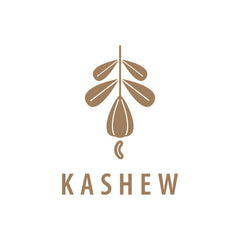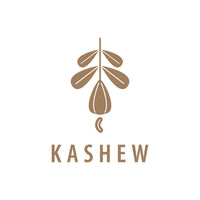Does Cashew Cheese Have Enough Protein? A Science-Based Perspective
In recent years, nut-based cheeses—especially those made from cashews—have become increasingly popular among health-conscious consumers. A common question remains: Does this type of cheese provide enough protein to substitute for dairy cheese or meat?
1. Protein – An Essential Nutrient for Everyone, Not Just Athletes
Protein is not only the “building material” for muscles but also plays a role in forming enzymes, hormones, the immune system, as well as the structure of skin, hair, and nails. For athletes, protein is crucial for repairing muscle fibers damaged during training and for maintaining lean mass, even during fat-loss phases.
For individuals following a healthy diet—or even for the average person—protein supports satiety, stabilizes blood sugar, promotes metabolism, and helps preserve muscle during weight management. It also supplies essential amino acids that the body cannot synthesize, which are vital for tissue repair, antibody production, and overall health.
2. Protein in Cashew Cheese – Amounts and Nutritional Value
Cashews the core ingredient in Kashew cheese—provide on average 18g of plant protein per 100g. Unlike animal protein, cashew protein contains no cholesterol, is lower in saturated fat, and is rich in arginine, an amino acid that improves blood circulation and is favored by athletes.
Cashews also supply magnesium, zinc, and iron—essential minerals that support energy metabolism and endurance. Their tryptophan content is relatively high compared with almonds, walnuts, or pumpkin seeds. Tryptophan is a precursor of serotonin, a neurotransmitter that regulates mood and sleep quality. In addition, cashews contain higher levels of arginine and histidine than most common nuts, supporting circulation, tissue regeneration, and immune function.
When blended, cashew protein creates a naturally creamy, smooth texture. This allows cashew cheese to achieve thickness and pleasant mouthfeel without added gums or thickeners.
Kashew cheese is also naturally fermented, which:
- Reduces antinutritional compounds and enhances mineral absorption.
- Produces bioactive compounds that support gut microbiota.
- Improves digestibility, especially for people sensitive to dairy products.
3. Quick Comparison: Dairy Cheese vs. Kashew Cheese
| Criteria | Dairy Cheese | Kashew Cheese |
|---|---|---|
| Protein (per 100g) | 20–25g | 12–18g |
| Saturated Fat | 60–70% | 18–20% |
| Cholesterol | Present | 0 mg |
| Fiber | 0g | 2–3g |
| Digestibility | May cause issues for lactose-intolerant | Easier to digest, suitable for many diets |
While cashew cheese may contain slightly less protein than dairy, it clearly outperforms in terms of “clean nutrition,” digestibility, and cardiovascular benefits.
4. Amino Acids & Smart Food Pairings
Proteins are built from amino acids, just like sentences are built from letters. Of the 20 amino acids, 9 are essential, meaning the body cannot synthesize them and they must come from food.
Many plant proteins—including those from cashews are incomplete, meaning they lack or contain lower amounts of certain essential amino acids. However, this limitation can be easily addressed with smart pairings:
- Combine with whole grains such as brown rice, millet, oats, or barley.
- Pair with legumes like chickpeas, lentils, or edamame.
Example: Chickpea salad with Kashew Kream Cheese, or brown rice + stir-fried vegetables + aged Kashew cheese. These combinations provide nearly all essential amino acids while also being rich in fiber, minerals, and healthy fats.
5. Who Benefits Most from Cashew Protein?
- Vegetarians/vegans seeking high-quality plant protein.
- Athletes needing easily digestible protein for recovery.
- Clean eaters or low-fat dieters who still want flavorful meals.
- Individuals who are lactose-intolerant or wish to reduce cholesterol intake.
6. Conclusion
Cashew cheese may not surpass dairy cheese in raw protein numbers, but it offers a broader nutritional profile: healthy fats, fiber, minerals, and fermentation benefits. When combined with whole grains or legumes, it can absolutely serve as an excellent protein source in daily diets.
As nutrition researcher Tim Spector has emphasized: “No single food is perfect, but when you diversify plants in your diet, you are giving your microbiome a real feast.”
Tim Spector is a renowned researcher in nutrition and health, particularly in gut microbiome studies and public health.
References:
+ Young VR, Pellett PL. “Plant proteins in relation to human protein and amino acid nutrition.” Am J Clin Nutr. 1994;59(5 Suppl):1203S-1212S.
+FAO/WHO/UNU. “Protein and amino acid requirements in human nutrition.” WHO Technical Report Series 935, 2007.


Leave a comment